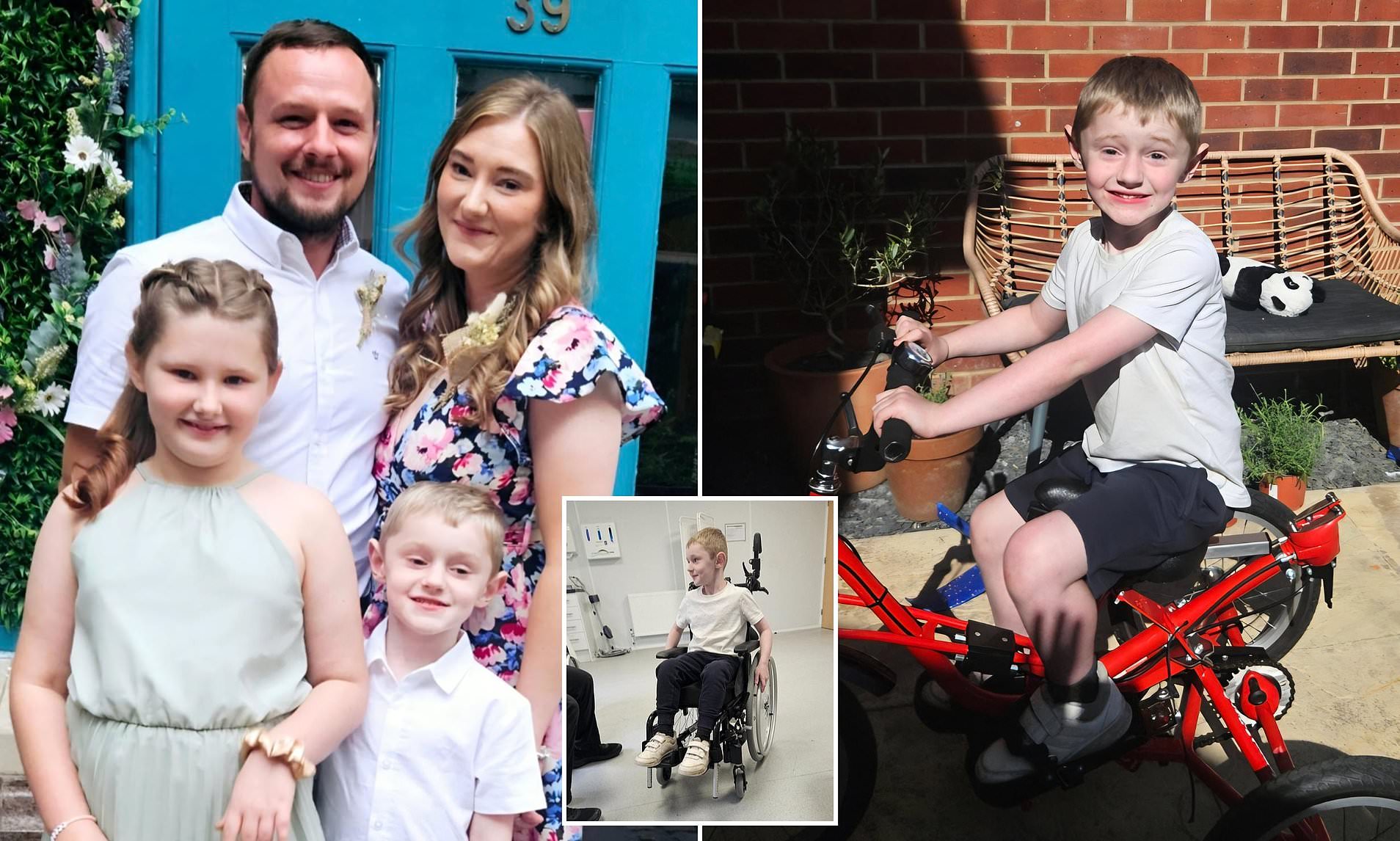A family’s life was entirely transformed after they found out their cherished seven-year-old son’s cramps were actually a sign of a rare genetic condition, which had been incorrectly identified as autism for three and a half years.
Young Evan, residing in Maidstone, Kent, learned about his severe condition only on February 8 this year following a laser tag birthday gathering with his friends.
Within 15 minutes, his calf muscle started cramping, preventing him from participating – but his mother, Laura Winter, mentioned that this time it was significantly worse than the leg cramps he had previously faced.
Mrs. Winter took her son to the doctor, who then referred him for a blood test. The family received a call informing them that Evan needed to be taken urgently to the emergency department.
After additional tests, a physician informed the family that he suspected Evan had a condition known as Duchenne Muscular Dystrophy (DMD) — a serious genetic disorder that usually starts around age four and worsens quickly, leading to muscle deterioration and challenges in standing.
The family is currently collecting funds through aGoFundMe campaign aimed at providing young Evan with a ‘normal’ life.
Speaking with MailOnline, Ms. Winter mentioned, “Evan occasionally expressed that he disliked walking, and it was believed to be connected to his autism since he often walked on his toes.”
He maintains a very stiff posture and appears highly anxious, which was regarded as an additional sign.
Ms. Winter described the intense cramps that happened at a birthday gathering just a few days prior to Evan’s seventh birthday.
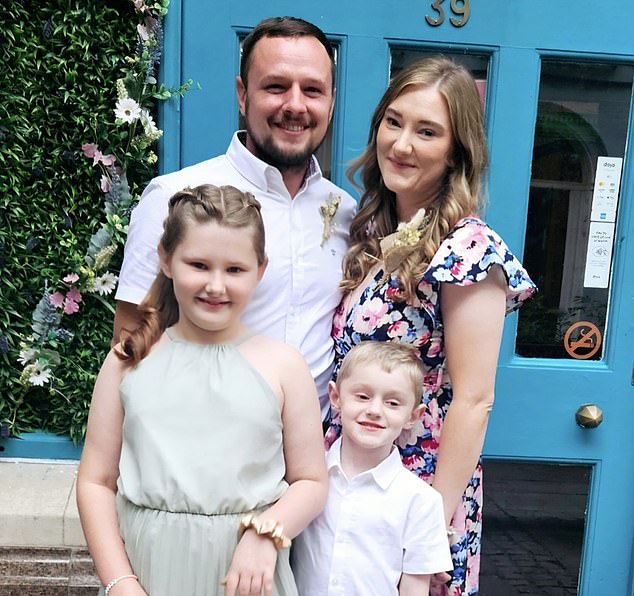
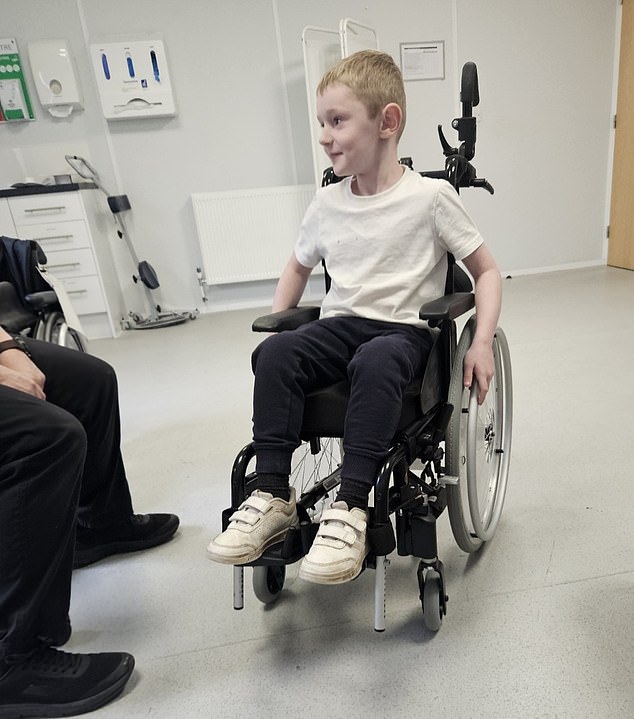
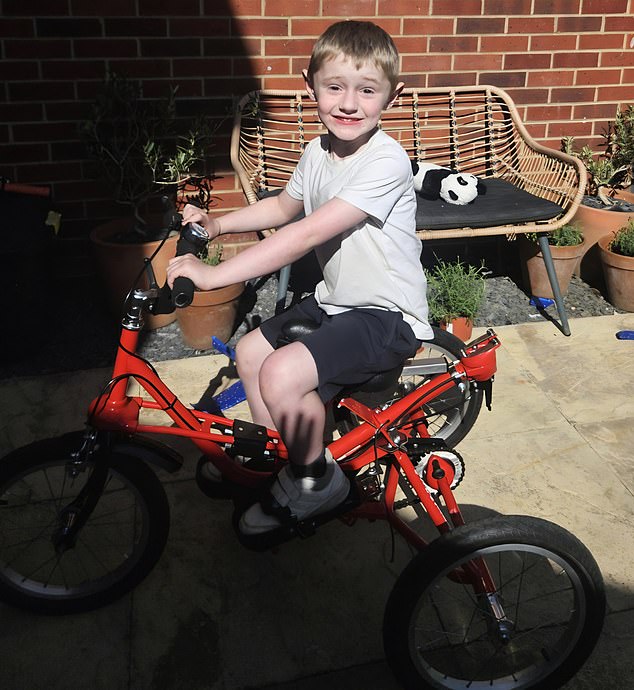
She mentioned that she and her husband gripped each other’s hands “very tightly” upon hearing the diagnosis, and the drive home was “very quiet.”
Ms. Winter remarked, “At times, it seems as though we’re residing in an alternate reality, and everything will come to an end soon.”
If our young son had undergone a blood test after his initial visit to the community pediatrics team three and a half years ago, we would have discovered much sooner.
The loving mother referred to her son as ‘hilarious’ and ‘a very amusing young child’.
She said, “He is really fond of dinosaurs and the Jurassic World. He’s very humorous, kind, and affectionate – he’s greatly loved by everyone who meets him. Everyone he encounters, he bombards with one dinosaur fact after another.”
Miss Winter was surprised to learn that she had transmitted the defective DMD gene to her son, as she was unaware of any family history related to the disorder.
She stated, “Until recently, we were a ‘typical’ family, leading a straightforward yet ‘ordinary’ life with our two lovely children, Amelie and Evan. We felt incredibly fortunate to have two joyful and healthy kids.”
The family is currently seeking funds to assist Evan with his illness, expressing that they feel ’embarrassed’ about having to ask friends, relatives, and the general public for support.
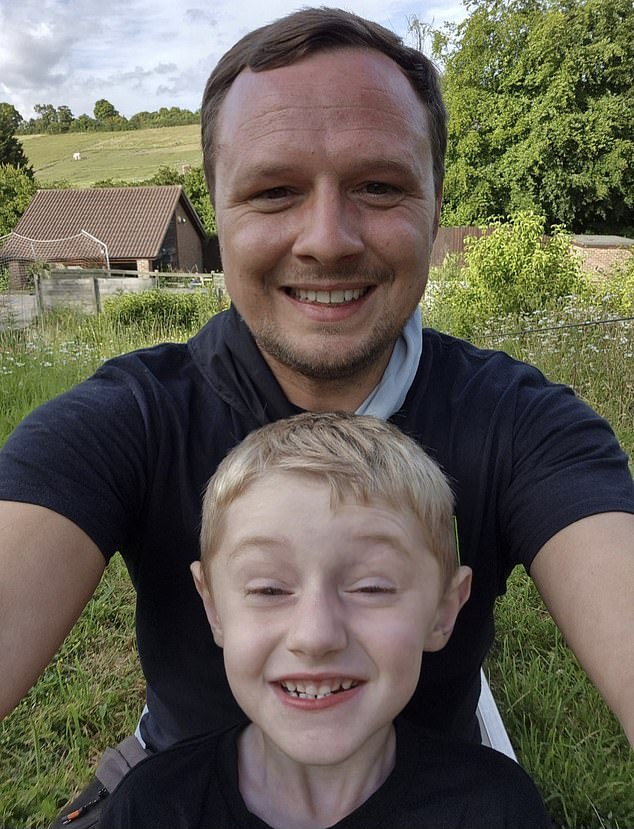
A GoFundMe pageorganized by Ms Winter states: ‘As Evan enters his teenage years and early adulthood, he will depend entirely on us for everything as his muscle deterioration progresses.’
The warning is, we can’t afford a house that can be made suitable, even though we are a two-parent working household, with local property prices for adaptable homes ranging between £500,000 and £600,000.
We are unable to extend our working hours without sacrificing valuable time with our son. We can’t relocate to a more affordable area since we have our support systems, friends, the children’s school, and medical teams nearby. We are essentially trapped in a flawed system that provides no help.
It’s impossible for us to rescue our lovely young son from this terrible, dreadful illness, but we will do everything possible to provide him with a secure and pleasant environment, where he can experience the happiest childhood we are capable of giving him.
Ms. Winter informed MailOnline that Evan’s symptoms had “never been significant enough to search on Google,” and she felt there needs to be greater awareness regarding DMD.
“If guardians sense that something isn’t quite correct—rely on your intuition, advocate more firmly,” she concluded.
If you wish to contribute to the family, please check their GoFundMe page.

